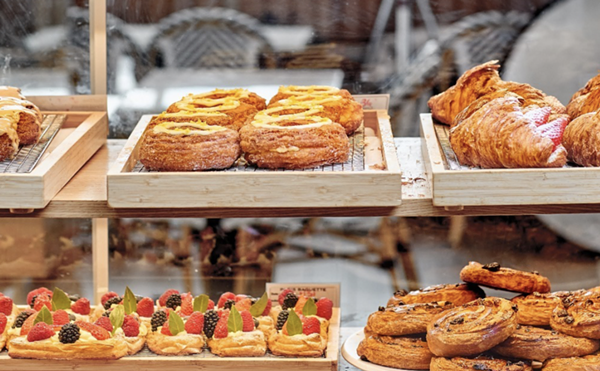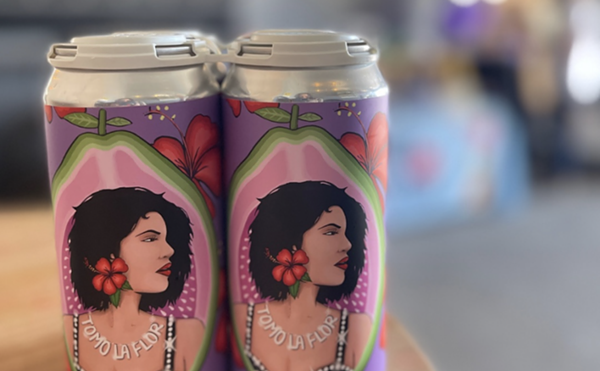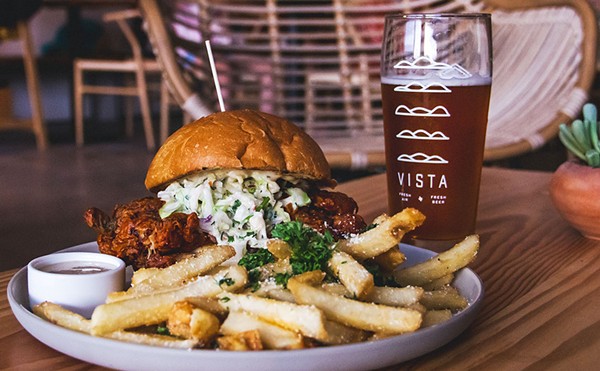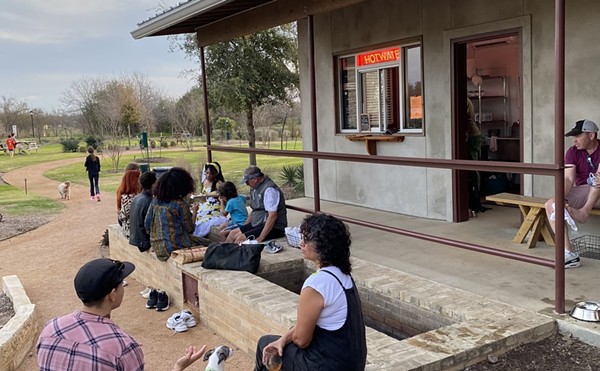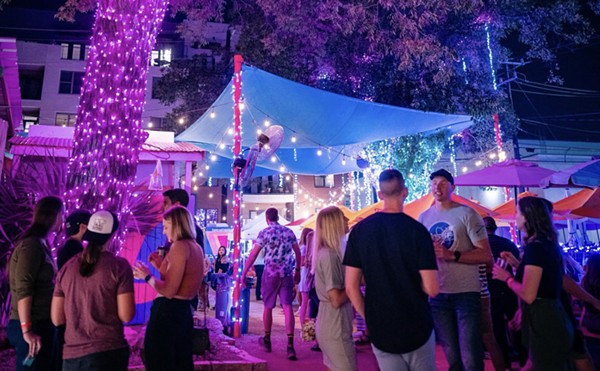Nestled among the grapes of the Hill Country hides a golden kernel of organic corn. Nobody’s going to consume this maize, however, until it courses through the meticulous bourbon-making process at the Garrison Brothers distillery. The owners are currently aging a mellow and full-bodied bourbon whiskey, batch-distilled from Texas-grown grains stewed in limestone-filtered groundwater and mixed with purified Blanco County rainwater before being funneled into custom casks. A pre-release in February offered select Texan tipplers the first legally homegrown bourbon available since before Prohibition. One thousand bottles were distributed to a handful of local stores. They sold out within 72 hours.
Texans love their drink, and increasingly they are able to drink their own. The state’s stuffy alcohol laws bar out-of-state concerns from establishing local distilleries, and currently only 15 companies statewide possess distilling licenses from the Texas Alcoholic Beverage Commission. But as interest ferments, the government permit press has been whirring: One-third of standing licenses were issued since 2009. Two more spirit entrepreneurs have applications pending approval, and others reportedly have plans in the pipes.
“There are some major trends in the distilled spirits world,” says David Pickerell, former master distiller for Maker’s Mark and head of Kentucky-based Oak View Consulting. “One of the trends is toward ‘drink less but drink better,’ one of them is toward premium-ization, and one if them is toward customization.” All three of those bode well for craft makers, he says.
Although the rugged Lone Star character favors whiskey, most upstart state producers have focused on vodka and rum — profitable potables with a forgiving learning curve. Today, Garrison Brothers is the first and only Texan spirit producer to manufacture bourbon, while Balcones Distillery in Waco creates whiskey and rumble. Another, Rebecca Creek, will soon be bottling Texan whiskey distilled right here in Bexar County.
Try before you buy
Effective May 13, 2009, Texas dis-
tilleries may serve free samples on
their licensed premises of the distilled
spirits they produce, with the follow-
ing restrictions:
• The sampling event may not be advertised
except by on-site communication or direct
mail.
• Only the permit holder or agent or
employee may dispense or participate in
the dispensing of samples.
• The distillery may not serve a person more
than one sample of each brand of distilled
spirits being served at a sampling event.
• The distillery may not serve a sample to a
minor or to an obviously intoxicated
person.
• Sample portions may not exceed one-half
ounce.
• A person who receives a sample may not
take it away from the licensed premises of
the distillery.
“The idea of using things that are indigenous from your area, that’s what it’s about,” says Bill Owen, founder of the American Distilling Institute. “The big distilleries all have very similar taste profiles while the new artisan distilleries are handmade. Doing it with a small still with your water, your corn, your temperatures, your yeast strains, and all the other stuff — that’s where Dan `Garrison` has the advantage. If he does something he doesn’t like he can adjust it very quickly. And look at Balcones, making a rumble from Texan wildflower honey, figs, and turbinado sugar. It’s all handcrafted, and it raises the bar. The renaissance is on. This is a lifestyle.”
Garrison’s lifestyle has seen some marked changes. A Texas native who spent years in New York City honing his pitchman skills as a marketing exec, he left the Big Apple behind about a decade ago and, after some time in Austin, bought a 68-acre farm in Hye, an unincorporated community of just over 100 residents about an hour outside of San Antonio, smack in the middle of ranging Hill Country wineries. He now spends his days alongside his small crew grinding grain and cooking sweet mash — roughly 75-percent organic corn from the Texas panhandle, the rest a blend of organic wheat and barley, some of which Garrison farms on-site.
Every step of the transformation from grain to glass is painstakingly carried out by hand. The 100-gallon copper still streams the precursor “white dog,” which is then decanted for aging in charred 10-gallon barrels of fine-grain one-inch-thick oak assembled by a Minnesota cooperage. Standard 53-gallon bourbon casks are constructed with thinner wood, but Garrison’s smaller, thicker barrels favor intense steeping and permit deeper penetration in the vacillating climate of central Texas. “This bourbon will knock Kentucky distillers right out of their chairs,” boasts Garrison.
Texas whiskey is already making a splash. The Balcones Baby Blue corn whiskey — the first Texas-made whiskey since Prohibition and the only worldwide to be produced from blue corn — garnered a double gold medal in the corn-whiskey category at the prestigious San Francisco World Spirits Competition this March. Its rumble won a silver medal in the miscellaneous spirits category. The company, which pounded out its own copper stills and manufactures its own equipment, is fine-tuning a new Balcones single-malt whiskey, due out by the end of the year.
Closer to home, Bexar County’s first post-Prohibition distillery, Rebecca Creek, has elected to take a different tack. Partners Mike Cameron and Steve Ison have ordered a 3,000-liter (793-gallon) automated still from a family-owned German manufacturer with 140 years of history. With the aid of master distiller and consultant Eric Watson, the team is constructing a state-of-the-art facility that will enable an economy of scale to be rolling out Texan single-malt ultra-premium whiskey at a $34-per-bottle price point by 2011. Handsome star-embossed bottles will be filled with amber liquor aged in bourbon-seasoned barrels in a 2,200 square-foot rickhouse that, like Garrison’s product, will benefit from the region’s limestone-filtered aquifer and searing heat.
“In the craft `distillation` industry, this is going to be one of the largest in North America,” says Watson. “Among traditional distillers, the technology hasn’t really been optimized to try and find the perfect balance to develop the taste profile you want without catching any of the negatives. This distillation technology is so advanced, I produce a cleaner spirit right off the bat, so when it does make wood contact, you can minimize the time to get the right character, and leave all the others behind.”
“Sampling the craft spirits around the country is what got us excited about this project,” adds Cameron, who envisions having a large rolling stock of 600 standard-size barrels maturing once his system is up to speed. “We’re trying to bring these small-craft distilling techniques to supply a larger market. Texas is so loyal to Texas products, we just want to focus on the Texas market.” •





